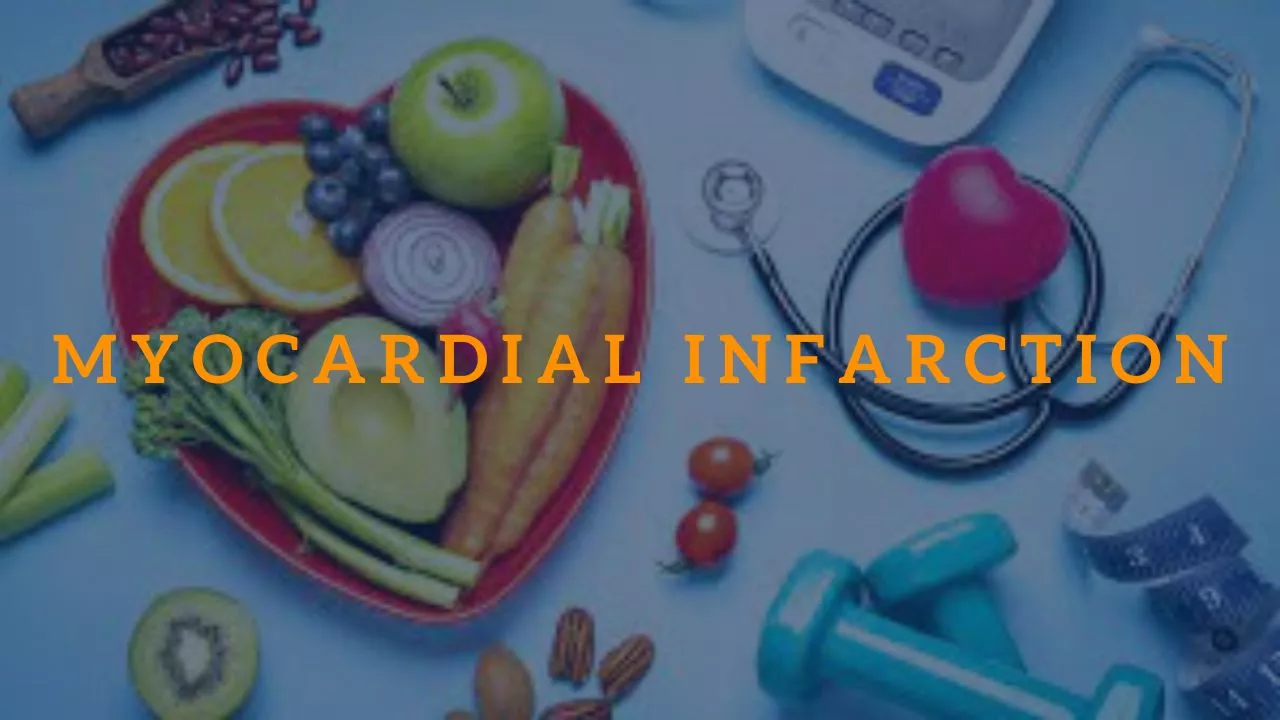Hello 1-GSM Visitors, heart attacks or myocardial infarctions are one of the leading causes of death worldwide. A heart attack occurs when there is a blockage in the blood vessels that supply the heart muscles with oxygen and nutrients. In this article, we will discuss about myocardial infarction and provide you with a comprehensive understanding of this condition.

What Causes Myocardial Infarction?
According to the American Heart Association, the most common cause of myocardial infarction is a buildup of plaque in the arteries that supply blood to the heart. This plaque is made up of cholesterol, fat, and other substances that can narrow or even block the arteries. When the heart does not receive enough blood flow and oxygen, it can cause damage to the heart muscles.
What Are the Symptoms of Myocardial Infarction?
The symptoms of myocardial infarction can vary from person to person. Some people may experience chest pain or discomfort, while others may feel shortness of breath, nausea, or lightheadedness. It is important to note that some people may not experience any symptoms at all, which is known as a silent heart attack.
How Is Myocardial Infarction Diagnosed?
To diagnose myocardial infarction, doctors may perform a physical examination, review medical history, and conduct some tests, including an electrocardiogram (ECG), blood tests, and imaging tests, such as an echocardiogram or cardiac catheterization.
What Are the Risk Factors for Myocardial Infarction?
Several factors can increase the risk of developing myocardial infarction, including age, gender, family history, high blood pressure, high cholesterol, smoking, obesity, diabetes, and a sedentary lifestyle.
How Is Myocardial Infarction Treated?
Treatment for myocardial infarction may include medications, such as aspirin, beta-blockers, or nitroglycerin, or procedures, such as angioplasty or coronary artery bypass surgery. In addition, lifestyle changes, such as quitting smoking, eating a healthy diet, and exercising regularly, can help prevent future heart attacks.
Preventing Myocardial Infarction
Preventing myocardial infarction involves making healthy lifestyle choices, such as maintaining a healthy weight, quitting smoking, eating a balanced diet, and staying physically active. It is also important to manage any underlying conditions, such as high blood pressure or diabetes, and to take medications as prescribed by your doctor.
Myocardial Infarction vs. Cardiac Arrest
It is important to note that myocardial infarction is not the same as cardiac arrest. A heart attack occurs when there is a blockage in the arteries that supply blood to the heart, while cardiac arrest is when the heart suddenly stops beating. While both are medical emergencies, they require different treatments.
Myocardial Infarction in Women
According to the American Heart Association, myocardial infarction symptoms in women can be different than those in men. Women may experience atypical symptoms, such as fatigue, jaw or back pain, or shortness of breath, which can lead to delayed or missed diagnosis.
Myocardial Infarction in Men
Men are more likely to develop myocardial infarction than women, and they may also experience more classic symptoms, such as chest pain or discomfort. It is important for men to be aware of the risk factors for heart disease and to make healthy lifestyle choices to prevent heart attacks.
Myocardial Infarction in Young Adults
While myocardial infarction is more common in older adults, it can also occur in young adults. Risk factors for heart disease, such as smoking, high blood pressure, and high cholesterol, can affect people of all ages. It is important for young adults to make healthy lifestyle choices and to manage any underlying conditions to reduce their risk of heart attacks.
Myocardial Infarction in Athletes
Myocardial infarction in athletes is rare but can occur due to underlying heart conditions or overexertion. It is important for athletes to undergo regular medical checkups and to be aware of the warning signs of heart attacks.
Myocardial Infarction and Stress
Stress can increase the risk of developing myocardial infarction. Chronic stress can lead to high blood pressure and other risk factors for heart disease. It is important to manage stress through healthy coping mechanisms, such as exercise, meditation, or therapy.
Myocardial Infarction and Diet
Diet plays a crucial role in preventing myocardial infarction. A diet rich in fruits, vegetables, whole grains, and lean protein can help lower cholesterol levels and reduce the risk of heart disease. It is also important to limit saturated fats, trans fats, and sodium.
Myocardial Infarction and Exercise
Regular exercise can help prevent myocardial infarction by improving cardiovascular health and reducing the risk of obesity, high blood pressure, and other risk factors for heart disease. It is important to consult with a doctor before starting an exercise program and to gradually increase the intensity and duration of physical activity.
Myocardial Infarction and Smoking
Smoking is a major risk factor for myocardial infarction. Nicotine in cigarettes can cause the blood vessels to narrow, while carbon monoxide can reduce the amount of oxygen in the blood. Quitting smoking can significantly reduce the risk of heart attacks.
Myocardial Infarction and Medications
Medications, such as aspirin, beta-blockers, or cholesterol-lowering drugs, can help prevent myocardial infarction by reducing the risk of blood clots, lowering blood pressure, or lowering cholesterol levels. It is important to take medications as prescribed by your doctor and to report any side effects.
Myocardial Infarction and Surgery
In some cases, surgery may be necessary to treat myocardial infarction. Angioplasty, stenting, or bypass surgery can help restore blood flow to the heart and prevent future heart attacks. It is important to discuss the risks and benefits of surgery with your doctor.
Conclusion
Myocardial infarction is a serious condition that requires prompt medical attention. By understanding the risk factors, symptoms, and treatments for heart attacks, you can take steps to prevent this life-threatening condition. Remember to make healthy lifestyle choices, manage any underlying conditions, and seek medical care if you experience any symptoms of myocardial infarction. See you again at our other interesting article!
